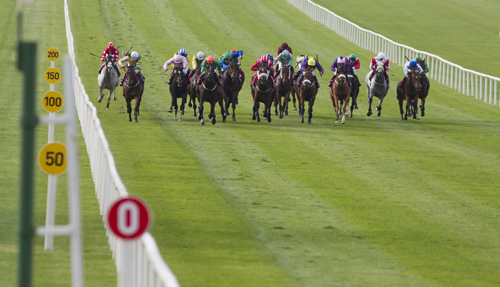The Thoroughbred breeding and racing industries in Ireland are the most prominent of any country on a per capita basis, according to an economic impact study conducted by Deloitte for Horse Racing Ireland.
“Our research identifies that breeding and racing activities in Ireland are the most prominent and important of any country on a per capita basis, having 50 Thoroughbred horses per 10,000 people–many multiples more than most racing nations,” said Alan Switzer, Director at Deloitte. “Ireland was second only to the U.S. as the biggest seller of bloodstock at public auctions in 2016 by value, and more than 20% of the top 100 flat horses in the world were Irish-bred. Ireland also boasts many of the world's leading breeders, trainers and jockeys.”
The study found that Irish breeding and racing generated €1.84-billion in total expenditure last year, combining €914-million core expenditure with €927-million secondary expenditure. Breeding and racing exports valued at €370-million-plus annually-including the close to €200-million worth of bloodstock sold at public auction overseas by Irish vendors–point to significant foreign direct investment, as does the fact that 2,300 racehorses in training in Ireland are owned by international owners.
The report also found that the Irish industry supports 28,900 jobs. In terms of popularity, 1.3-million people attended Ireland's 356 fixtures at 26 racecourses last year, second only to GAA in terms of attendance, and 25% of Irish adults said they have an interest in racing.
Joe Keeling, chairman of HRI, said, “The headline figures in this new report back up the assertion that breeding and racing in Ireland is a unique industry with a wide rural reach and a sizeable economic impact at home, but also one that continues to set global standards on many of the most important measures for our sector. Notwithstanding our success, and the popularity of racing, the most important issue that needs to be addressed is to put in place a long-term and sustainable funding structure for the industry which can allow it to be developed to its fullest potential, increasing both the economic and social dividend for the country.”
Not a subscriber? Click here to sign up for the daily PDF or alerts.






